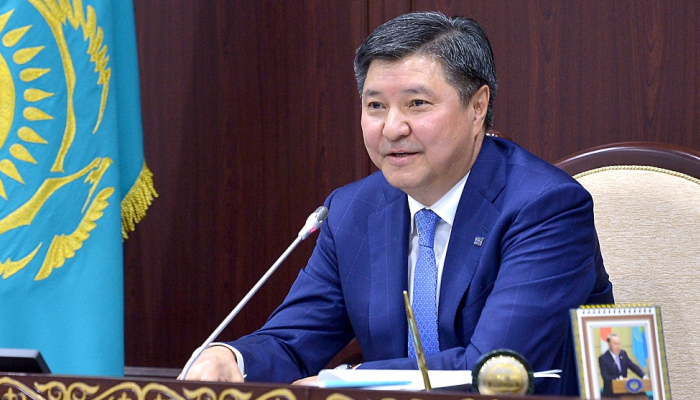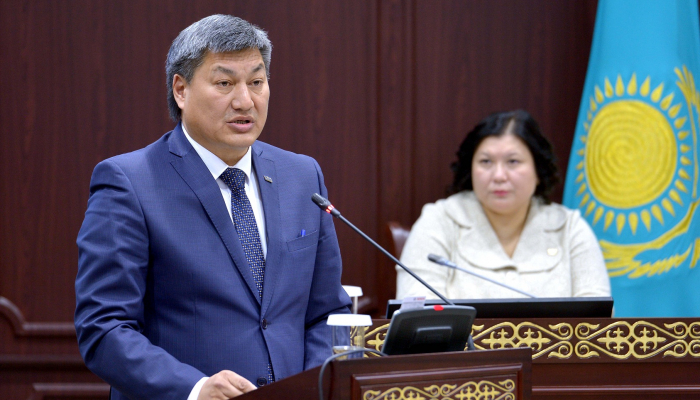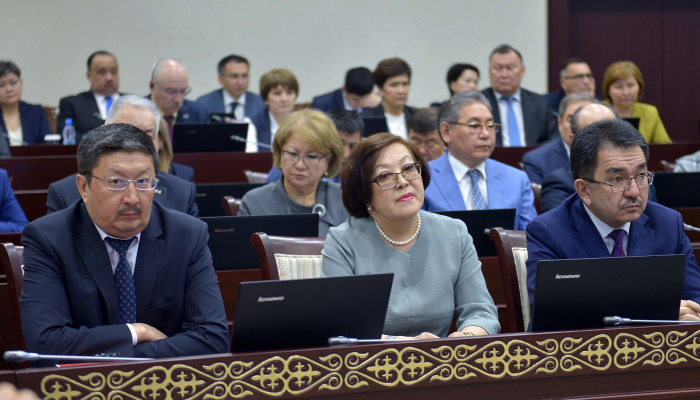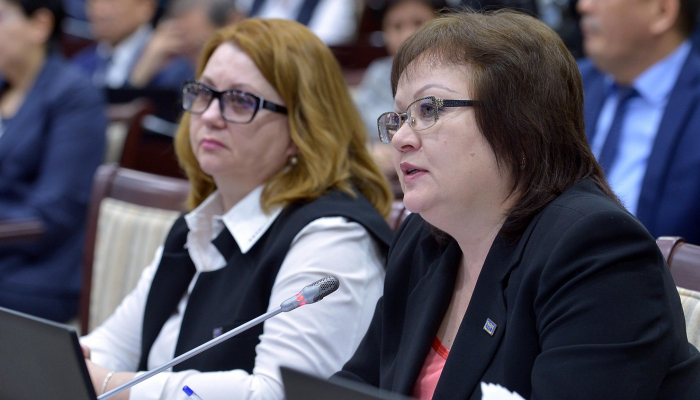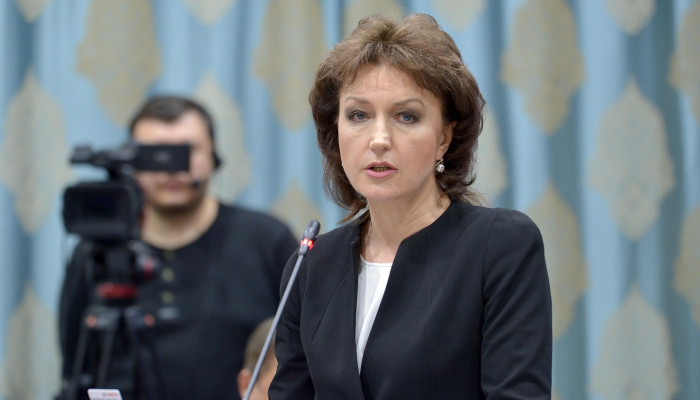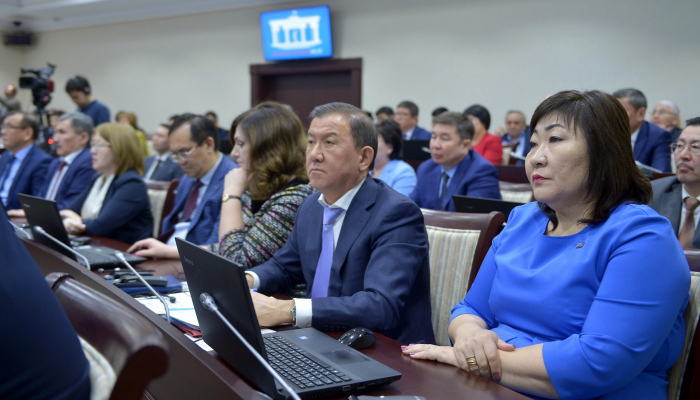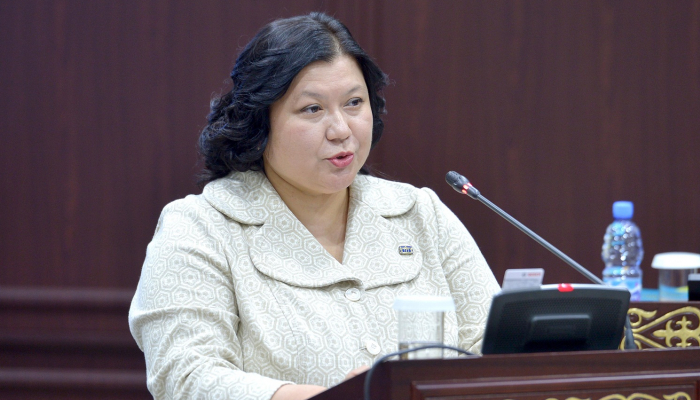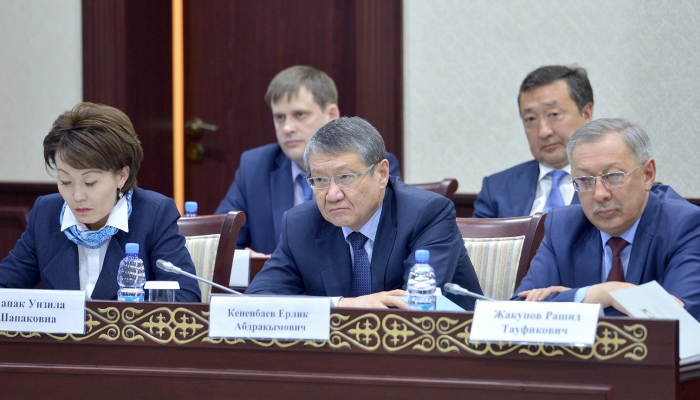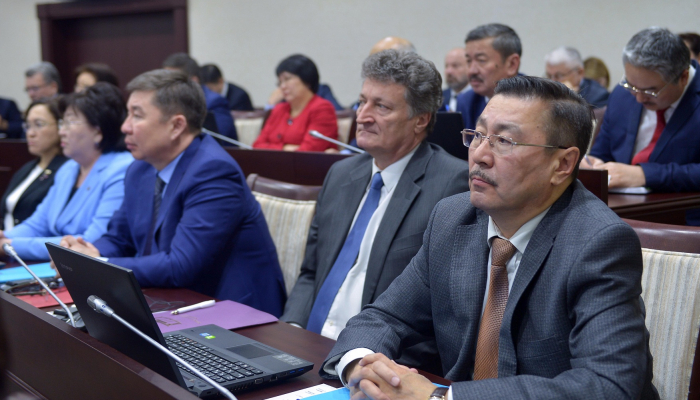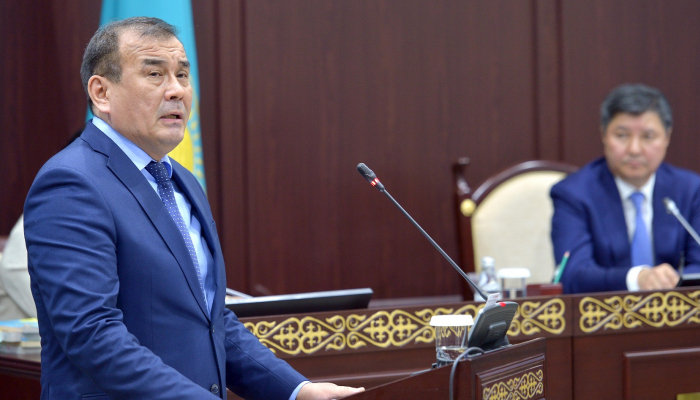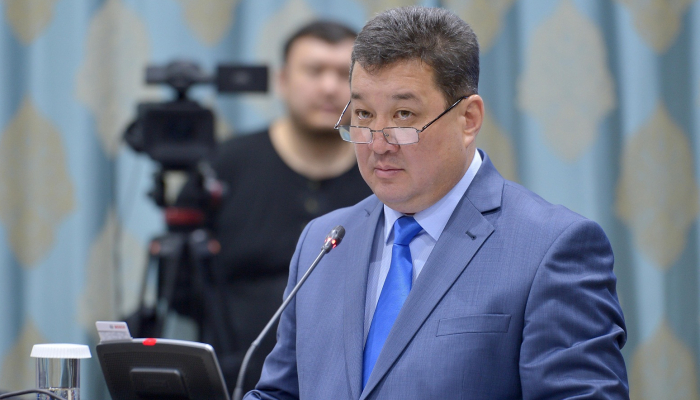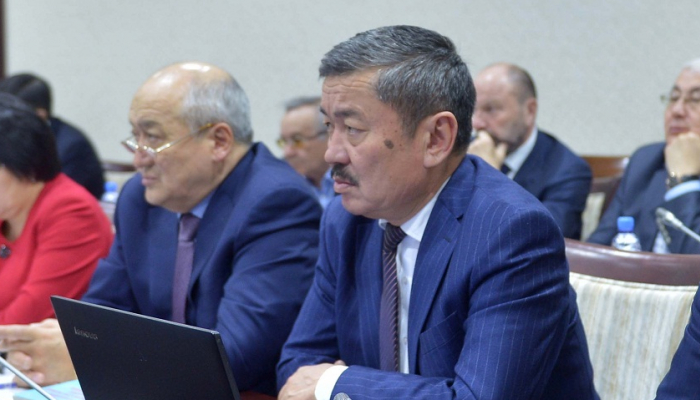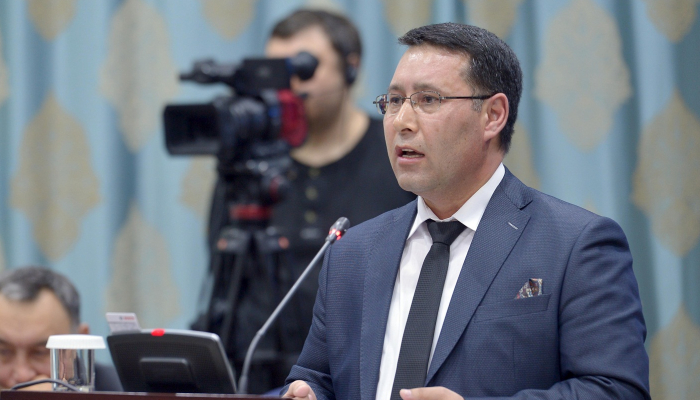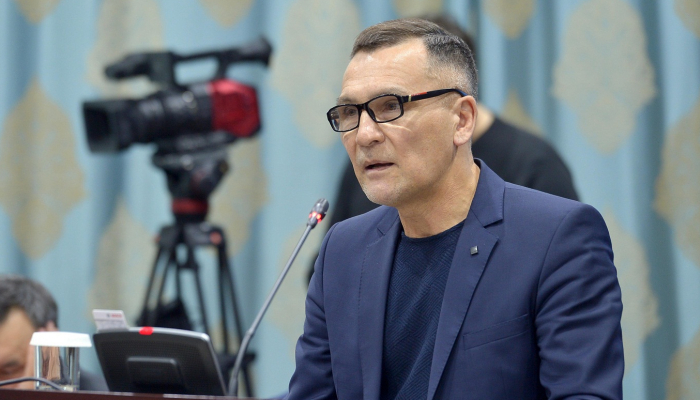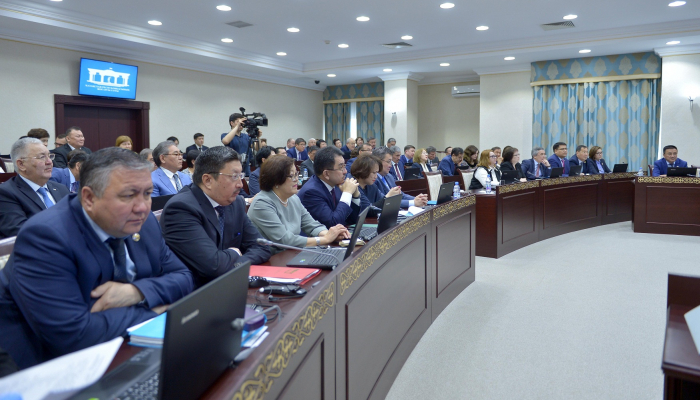Fri, 04/20/2018 - 16:36
The chairman of the Supreme Court Zhakip Assanov held a regular plenary session of the country's supreme judicial body.
The judges of the Supreme Court, members of the scientific advisory council, representatives of the Constitutional Council, the General Prosecutor's Office, the ministries of justice, internal affairs, as well as representatives of the Atameken NCE and the advocacy took part in its work.
The agenda includes discussion of five drafts of regulatory resolutions of the Supreme Court (RR), as well as amendments and additions to the Rules of Procedure of the plenary session of the highest judicial body. On the most important RR, the work of the plenary session was broadcast on the Internet online.
Presenting the draft of RR "On the Judgment", the Supreme Court Judge Yerbol Rakhimbekov noted that its development is conditioned by the need for strict compliance by judges with the requirements of the criminal procedural law, imposed on the form and content of the sentence. It was proposed to review the structure of all types of sentences: to abandon the bulkiness in the direction of brevity and laconism. “It is necessary to reflect only those events that are directly related to the case, to observe the chronology of events in multi-episode cases and divide the episodes by numerical designations, to separate the descriptive and motivating part of the verdict, reinforcing the requirements for the latter,” he said.
An amendment was made to the RR on the duty of the court to clarify the essence of the sentence in the same court session after its announcement.
Speaking about the draft of the RR "On the decision of the court in the case of an administrative offense," Supreme Court judge Gulzhan Almagambetova stressed that such an NP is adopted for the first time. This is dictated by the need to ensure uniformity of judicial practice in issuing decisions on administrative cases. The RR is a certain "rule" for drawing up decisions, both for courts and government agencies. It is indicated that the decree should be impeccable in terms of language literacy and issued in compliance with legal norms.
G. Almagambetova also spoke on the issue “On introducing amendments and additions to the Rules of Procedure of the Plenary Session of the Supreme Court”. The need for amendments is prompted by the rapid updating of legislation. It is proposed to provide for a simplified procedure for amending the RR if it is necessary to make editorial amendments that do not affect the content of the norms. When considering the personnel issues, it is envisaged to issue a reasoned conclusion of the plenary session of the Supreme Court. The procedure for considering the complaint of a candidate to a judge of a regional court for concluding a plenary session of a regional court is regulated.
According to the judge of the Supreme Court Valeriy Nozdrin the draft of RR "On Judicial Practice in cases of legal significance" is aimed at assisting judges in considering such a category of cases. So, pre-judicial procedure for settling the dispute is differentiated from the extra-judicial order of establishing a legal fact in the RR. The concept of extrajudicial procedure for establishing the fact is explained. The list of facts that can be established by the court (work at a certain enterprise or from another person to calculate the duration of service, the birth of a child by a given woman, birth registration of oralmans) is expanded.
The development of the draft RR "On Amendments and Additions to Certain Regulatory Decrees of the Supreme Court of the Republic of Kazakhstan on Civil and Civil Procedural Legislation", Supreme Court Judge Raziya Kuanyshbayeva explained by amendments to the Civil Procedure Code, the Code on Marriage (Maritmony) and Family, On the Prosecutor's Office" and the adoption of the Tax Code. The amendments have an editorial nature and aimed at eliminating contradictions and discrepancies between the current normative decrees and legislation.
The judge of the Supreme Court Rosa Zhakudina spoke on the issue "On introducing changes and amendments to some normative decrees of the Supreme Court of the Republic of Kazakhstan on criminal and criminal procedural legislation." She noted that the proposed drafts for the RR are dictated by changes in the current legislation. The amendments are of an editorial nature and relate to bringing it in line with the provisions of the Criminal Code and the Criminal Procedure Code. At the same time, there are also amendments of a content character aimed at developing a uniform judicial practice in the consideration of certain categories of criminal cases.
She noted that the proposed drafts for the RR are dictated by changes in the current legislation. The amendments are of an editorial nature and relate to bringing it in line with the provisions of the Criminal Code and the Criminal Procedure Code. At the same time, there are also amendments of a content character aimed at developing a unified judicial practice in the consideration of certain categories of criminal cases
The participants of the plenary meeting discussed the drafts of the RR and adopted them as the grounds; editorial commissions were set up for certain RRs.
Related materials
- Plenary session of the Supreme Court adopted a number of regulatory resolutions
- In the Supreme Court are discussed the regulatory resolutions drafts on imposition of criminal punishment, the protecting of copyrights and allied rights
- A Memorandum of understanding was signed between the Department of the Supreme Court and the Organization for Security and Co-operation in Europe Programme Office in Nur-Sultan

